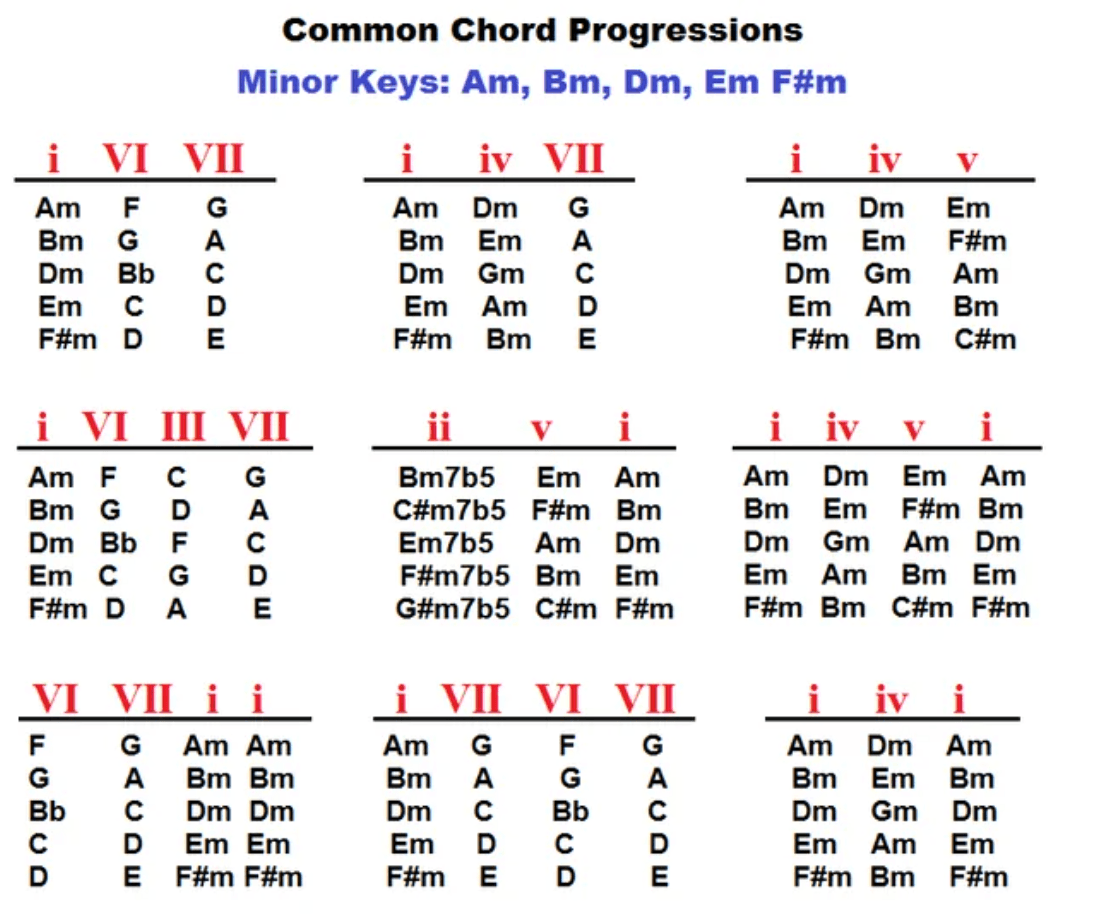The convergence of artificial intelligence with music offers unprecedented opportunities for musicians and producers. Empress, an innovative AI music software, seamlessly blends advanced algorithms with audio production, introducing tools that redefine creativity and efficiency.

AI Music Software: A Paradigm Shift in Audio Production
AI music software stands as a testament to the technological advancements in the realm of audio production. Empress, being at the forefront, amalgamates vast musical datasets to identify and replicate patterns, styles, and intricacies.
How Does AI Music Software Work?
This audio AI tool sits at the crossroads of tech innovation and artistic expression, tapping into expansive data pools and leveraging machine learning to comprehend and craft music. Here's a concise overview:
1. Data Ingestion: The foundation of any AI system is data. In the case of music software, this means thousands, if not millions, of songs, melodies, rhythms, and other musical components. This vast database allows the AI to learn from existing musical patterns and structures.
2. Pattern Recognition: Through machine learning, the software can recognize recurring patterns, styles, and nuances in the music. Whether it's the chord progression of a jazz piece or the rhythmic patterns of a drumbeat, the AI identifies and understands these elements.
3. Predictive Analysis: Building upon recognized patterns, the AI can predict subsequent musical notes, rhythms, or even lyrics. It's akin to how predictive text works but for music. This is particularly useful for generating melodies or suggesting chord progressions.
4. Feedback Loop: As users interact with the software, it learns from the feedback. If a suggested chord isn't quite right or a generated lyric misses the mark, the user's input helps refine the system's future outputs. Over time, this continuous learning process enhances the accuracy and relevance of the software's suggestions.
5. Integration with Digital Audio Workstations (DAWs): Many AI music tool solutions, including Empress, can seamlessly integrate with popular DAWs. This ensures a smooth workflow where AI-generated components can be easily incorporated into larger music projects.
What do I need to know to get started with AI Music Software?
Venturing into the world of AI music software introduces musicians to a symbiotic relationship between age-old artistry and cutting-edge technology. It's essential to understand that tools like Empress are not replacements but rather enhancements.
By seamlessly amalgamating AI into the realm of audio production, these tools empower creators to take their compositions to new heights. When integrated with your primary audio production setup, this AI music tool can streamline your workflow, suggest innovative chords, melodies, and even lyrics, tailored to resonate with your distinctive style.
Diverse software solutions populate the AI music software landscape. It's a riveting time for audio production as the AI music tool is no longer a futuristic fantasy but a tangible tool that sculpts tomorrow's soundscapes.
Apart from Empress, platforms like AIVA harness deep learning to craft orchestral scores, while Amper offers swift music composition for content creators. Orb, with its AI-powered plugins, serves as a beacon for producers craving instantaneous inspiration. Melodrive's dynamic music generation aligns perfectly with the pacing of video games, ensuring every note echoes on-screen emotions. Jukedeck, cherished by video creators, curates AI-crafted background scores that breathe life into visual narratives. It's a riveting time for audio production as AI music tools are no longer futuristic fantasies but tangible tools sculpting tomorrow's soundscapes.
This refined content provides a narrative flow, blending the essential considerations with a mention of the industry's key players while incorporating the specified keywords.

The Real-World Relevance of AI Music Software
Understanding how AI music software works is only half the equation. The real value shines when these functionalities address genuine needs in today's music landscape. Here's how Empress's tools align with these AI principles and cater to contemporary demands:
Generating Chords & Melodies: By absorbing and analyzing extensive musical data, Empress identifies common chord progressions and melodic structures across genres. When an artist is seeking inspiration, Empress can instantly suggest chord sequences or melodies, informed by this vast knowledge base.
Lyric Crafting: Lyrics are more than just words; they're the soul of a song. Empress’s lyric tool, using predictive analysis, can suggest lines or entire verses based on a given theme, ensuring the lyrics resonate with the intended emotion.
DJ Set List Creation: By analyzing past successful setlists and current musical trends, Empress predicts tracks that will resonate with an audience, ensuring every DJ event is a hit.
Refinement Over Time: As artists interact and provide feedback, Empress becomes a more potent co-creator. Whether tweaking a melody, adjusting a chord, or fine-tuning lyrics, the system learns from these interactions, becoming increasingly attuned to an artist's unique style and preferences.
Effortless Workflow: With seamless DAW integration, artists can swiftly incorporate Empress’s AI-generated components, be it a chord progression, melody, or rhythm, into their compositions, streamlining the audio production process.
SEO Tags: An artist's online presence begins with search engines. If your tracks or albums aren't discoverable, they risk getting lost in the vast digital expanse. SEO tags act as beacons, guiding potential listeners to your content. With Empress's AI-driven approach, these tags are not just generic keywords but are meticulously crafted based on current search trends, ensuring that your music is always relevant and easily discoverable.
YouTube Descriptions: YouTube remains a dominant platform for music discovery. However, with millions of tracks uploaded daily, standing out is crucial. Descriptions, often overlooked, play a pivotal role in this. They not only provide context but, when optimized, can dramatically boost a video's discoverability. Empress analyzes top-performing music videos, gleaning key descriptors and terms, ensuring that your track description resonates with both listeners and the platform's algorithm.
Instagram Captions: Social media engagement is no longer optional; it's essential. Instagram, with its visual-first approach, is a powerful tool for musicians. However, every post's success hinges on the caption. A well-crafted caption can drive engagement, spark conversations, and bolster track plays. Empress's AI evaluates successful music-based Instagram posts, crafting captions that captivate and engage, turning casual scrollers into dedicated listeners.
Is AI music software compatible with other audio production software?
In the ever-evolving ecosystem of music creation, compatibility is crucial. Musicians often utilize a plethora of tools, software, and platforms, each serving a specific role in their audio production journey. As AI music software continues its ascent in popularity and functionality, a pressing question emerges: how well do these advanced audio AI tools integrate with other audio production software?
The rise of AI music tools such as Empress, AIVA, and Amper presents a bold and innovative frontier in audio production. At their core, these platforms harness vast musical datasets and cutting-edge machine learning algorithms. Their mission is to assist artists in generating chords, melodies, lyrics, and even entire compositions. But for these creations to truly shine, they need to seamlessly fit into a musician's existing workflow. That means easy integration with popular Digital Audio Workstations (DAWs) and other software.
Fortunately, the design ethos behind many AI music software solutions emphasizes compatibility and user-friendliness. Developers understand that for AI to be a genuinely transformative tool in audio production, it must be a cog in a larger machine, not a standalone entity. This commitment to integration can be witnessed in multiple ways:
Plugin Formats: Many AI music tools are available in standard plugin formats like VST, AU, or AAX. This ensures they can be loaded directly into favorite DAWs like Ableton Live, Logic Pro, or Pro Tools, allowing musicians to utilize AI-generated content alongside their regular tools and instruments.
MIDI Exports: Even if an AI tool operates as a standalone application, most offer the capability to export creations in MIDI format. This universal file type can be imported into virtually any music software, offering flexibility in how and where the AI-generated music is used.
Collaborative Cloud Platforms: Some AI music solutions, like Jukedeck or Melodrive, operate predominantly in the cloud. This cloud-based approach provides an avenue for collaborative work, and generated tracks can be easily downloaded and integrated into a DAW for further refinement.
Custom Integration Tools: As the AI music software field expands, so does the demand for specialized integration tools. For instance, API access allows developers and tech-savvy musicians to create bespoke connections between AI software and other music applications, ensuring a tailored and optimized workflow.
While the potential of the audio AI tool in music is undeniable, its real power is unleashed when it operates harmoniously with other production tools. The industry recognizes this, with both AI software developers and traditional DAW creators often collaborating to ensure smooth interoperability.
FAQ: AI Music Software
Q: Will AI music software replace human musicians?
No, the AI music software is designed to complement and enhance human creativity, not replace it. They can help streamline certain tasks, but the emotional depth and unique creativity of human musicians remain irreplaceable.
Q: Can AI music software understand emotions and create music accordingly?
Many advanced AI music tools can recognize patterns associated with specific emotions in music and can be directed to create compositions that evoke certain moods or feelings.
Q: How steep is the learning curve for AI music software?
The AI music software is designed to be user-friendly, but like any tool, it may take some time to fully understand and utilize all its features.
Q: Is AI music software expensive?
The pricing varies. Some platforms offer subscription models, while others might have a one-time purchase fee. There are also free versions with limited features available for some tools.
Q: Is music created with AI software royalty-free?
This depends on the software's licensing model. Some platforms offer royalty-free music, while others may have different licensing arrangements.
Q: Are there any ethical concerns with using AI in music production?
Ethical concerns often revolve around the originality of AI-generated music and the potential devaluation of human creativity. It's crucial to use AI as a tool and not as a sole source of creativity.
Follow the future of music with Empress. Check out our blog to learn how you can effectively use these AI music tools.


